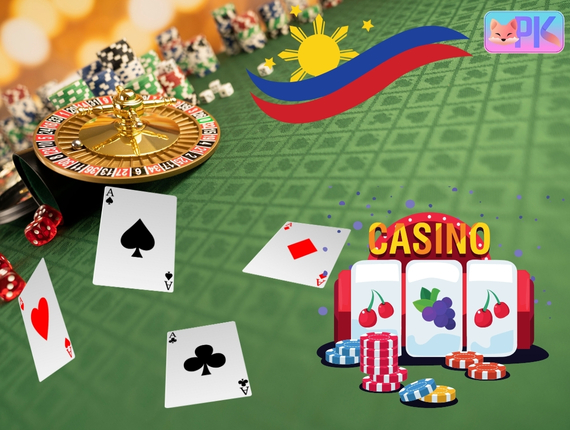PIGO - Philippine Inland Gaming Operators

What is PIGO?
In recent years, the Philippines’ gaming industry has seen a new trend, the emergence of “Philippine Inland Gaming Operators” (PIGO). This development is gradually replacing the previous “Philippine Offshore Gaming Operators” (POGO).
Background of the New Trend
The three casinos in the Manila metropolitan area of the Philippines have obtained PIGO licenses, marking a strategic shift in the country’s gaming industry. Compared to the previous POGO, the focus of PIGO casinos will be on online electronic table games, rather than live dealer casino games. This move is seen as a strategic adjustment to the gaming business in the wake of the COVID-19 pandemic.
Differences between PIGO and POGO
POGO primarily served international gamblers, especially Chinese gamblers. However, the difference between PIGO and POGO is that PIGO licenses allow operators to provide online gaming services to domestic gamblers in the Philippines. This means that PIGO legally opens up the domestic online gaming market in the Philippines. Gamblers can obtain access under certain conditions, but they need to go through a qualification review and can only deposit and withdraw at authorized PIGO brick-and-mortar establishments.
Significance and Role of PIGO
- Legalization and Regulation :
The introduction of PIGO helps to legalize and regulate the domestic gaming market. It provides a legal online gaming platform for domestic gamblers in the Philippines, collects and suppresses illegal online gambling activities, protects the rights and interests of operators and gamblers, and ensures the safety of gamblers’ funds. - Revenue Growth :
For casinos, PIGO provides a way to attract domestic players, which is crucial for casino revenue, as VIP gambler revenue typically accounts for 10-15% of annual revenue. Even in the event of business disruptions caused by the pandemic, PIGO can bring significant revenue changes to casinos. - Expansion of the Online Gaming Market :
The Philippine government’s initiative focuses on expanding the online gaming market. Specific land-based casino resorts, such as COD, Solaire, and OKADA, will be authorized to provide online gaming activities. PIGO-licensed casinos can expand their online gaming activities to offer more choices for domestic gamblers. - Transformation of Gaming Games : A key feature of the PIGO industry is the transition to operators of online electronic table games. These games are based on random number generation (RNG) technology, including electronic slot machines, blackjack, and roulette. These online games, with their online nature and seamless transition, have become the current focus of attention.
Licensing and Control
Currently, PIGO access is limited to VIP members of certain integrated resorts (IR). This is related to the Philippine government’s strict regulatory policy on the participation of domestic residents in gambling. The Philippine government has taken a cautious approach in expanding the gaming market to ensure the sustainable development of the gaming industry.
Impacts and Prospects
The rise of the PIGO industry has had an impact in several areas. First, it is expected to create new employment opportunities, which is positively significant for the Philippine economy, which has already been impacted by the pandemic. Second, the tax revenue from PIGO is expected to increase, providing support for the government’s funding needs. However, as the transformation process progresses, regulatory challenges remain, particularly in ensuring the fairness of games and protecting player rights.
Reasons for Government Support
There are several reasons why the PIGO industry receives strong government support. First, the Philippines’ gaming industry was severely impacted by the COVID-19 pandemic in 2020, with casino closures leading to a sharp decline in revenue, making the government urgently need to find new sources of economic growth. Second, the development of the PIGO industry is expected to expand the domestic online gaming market, generate tax revenue, and create job opportunities, all of which are crucial for the Philippines’ economic recovery.
See more : PKLive PK Lodi Contest
The main differences between GCP, PIGO, IGL and POGO licenses in the Philippines
Service objects
- GCP : Physical gaming customers in the Philippines.
- PIGO : Online gambling customers in the Philippine local market.
- IGL : Customers in the offshore online gambling market are mainly overseas markets.
- POGO : Customers in the offshore online gaming market are mainly overseas markets such as mainland China.
Operating model
- GCP : Entity operation.
- PIGO : Combined physical and remote operations.
- IGL : Offshore online operations.
- POGO : Offshore online operations.
Supervision and Compliance
- GCP : On-site inspection and financial audit.
- PIGO : On-site and technical inspection, player identity verification (KYC).
- IGL : Technical monitoring and data transparency.
- POGO : Technical monitoring and data transparency.
Further Reading :
What is POGO ?
What is IGL ?
Future outlook
As the PIGO industry continues to develop, its impact on the Philippine economy and gaming industry will gradually become apparent. However, the government needs to balance economic development with regulatory compliance relationship to ensure the sustainable development of the PIGO industry. While controlling risks and rotecting the rights and interests of players, the government will also continue to promote the innovative development of the PIGO industry and provide The gaming industry in the Philippines has been injected with new vitality.